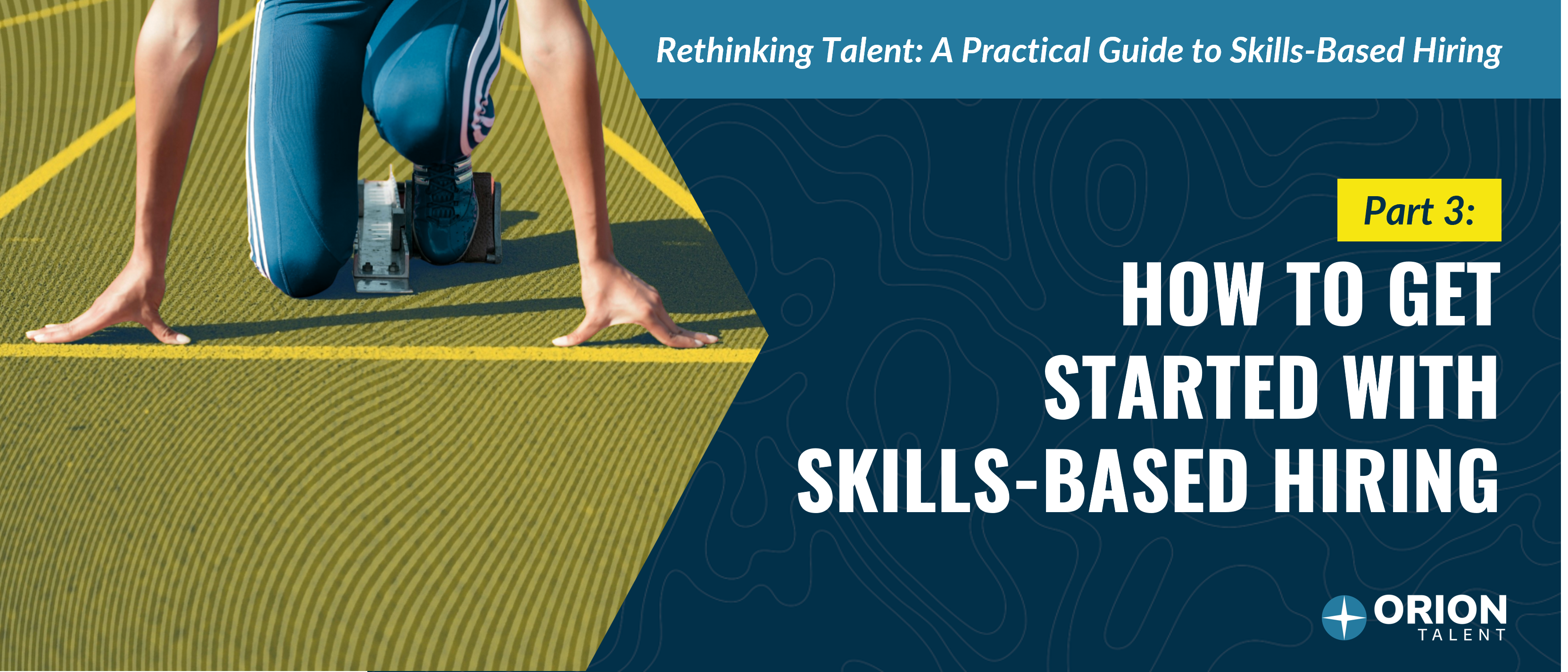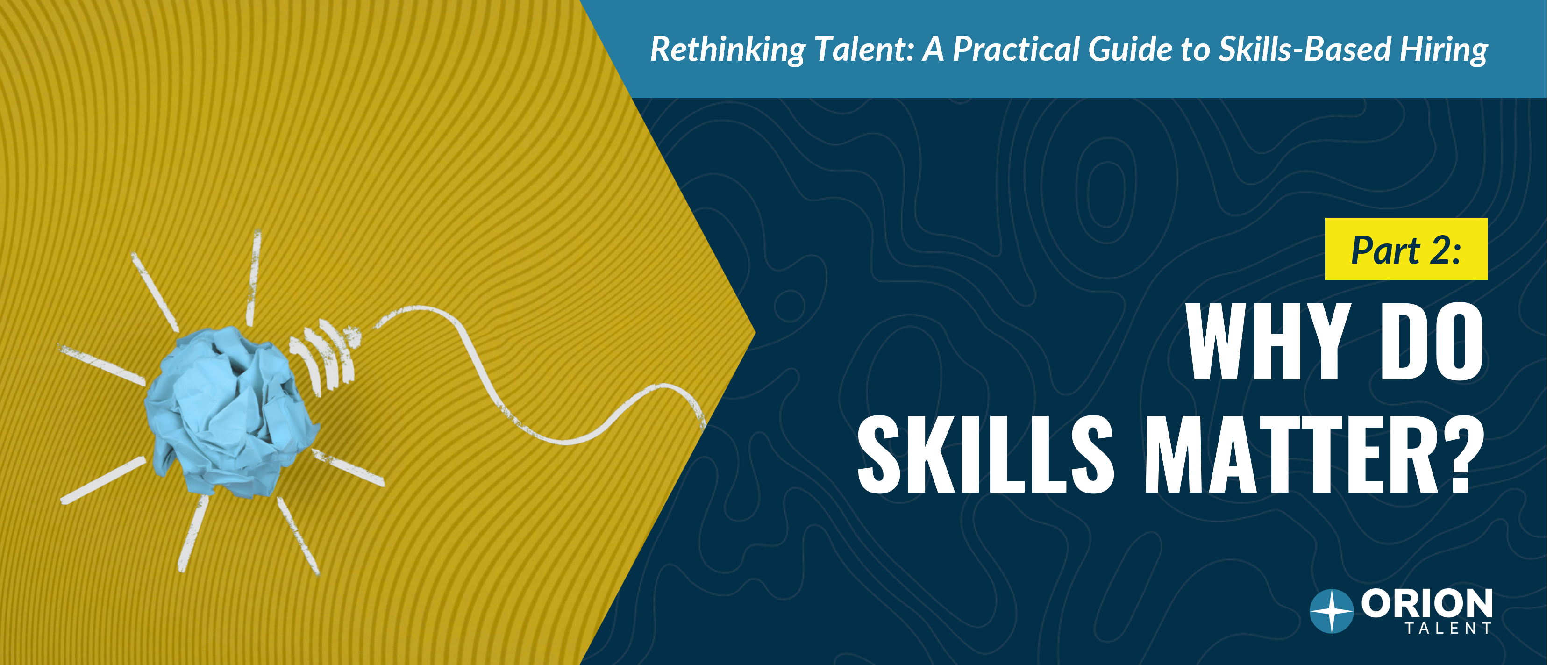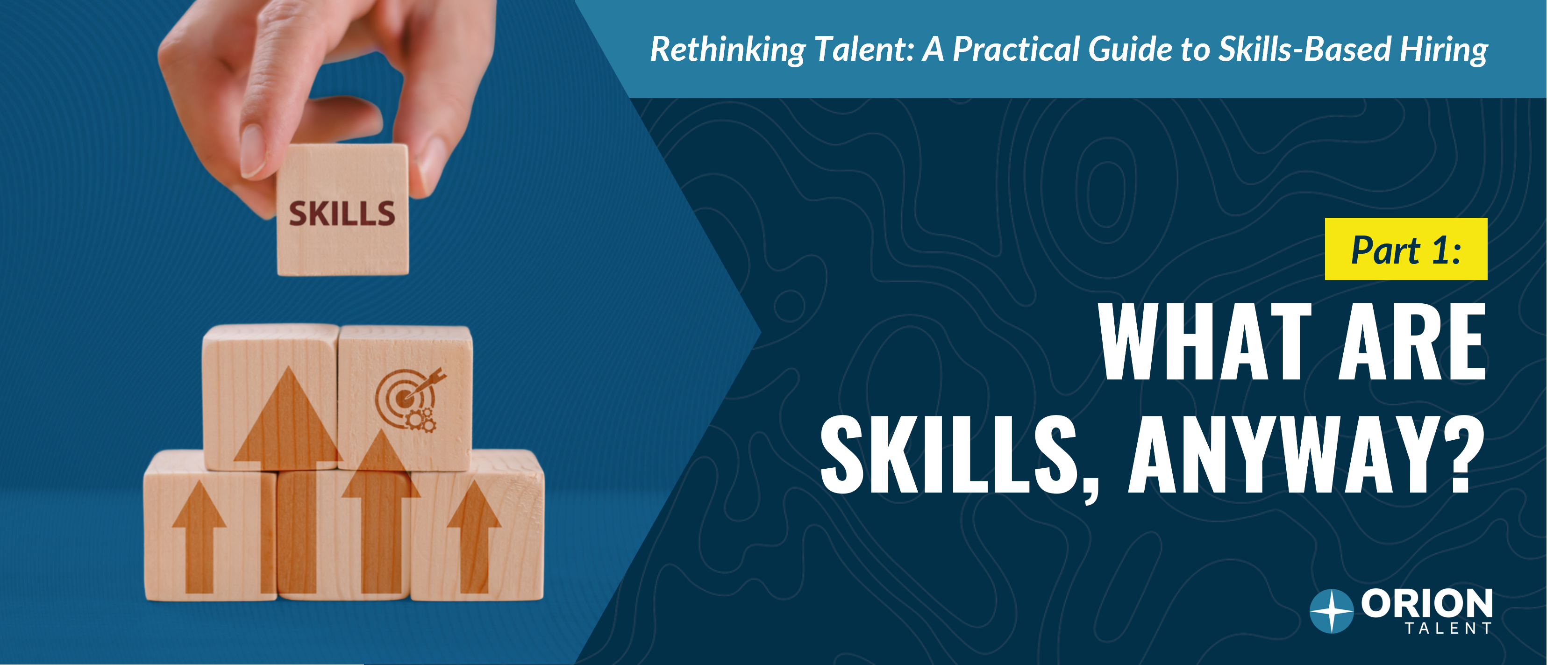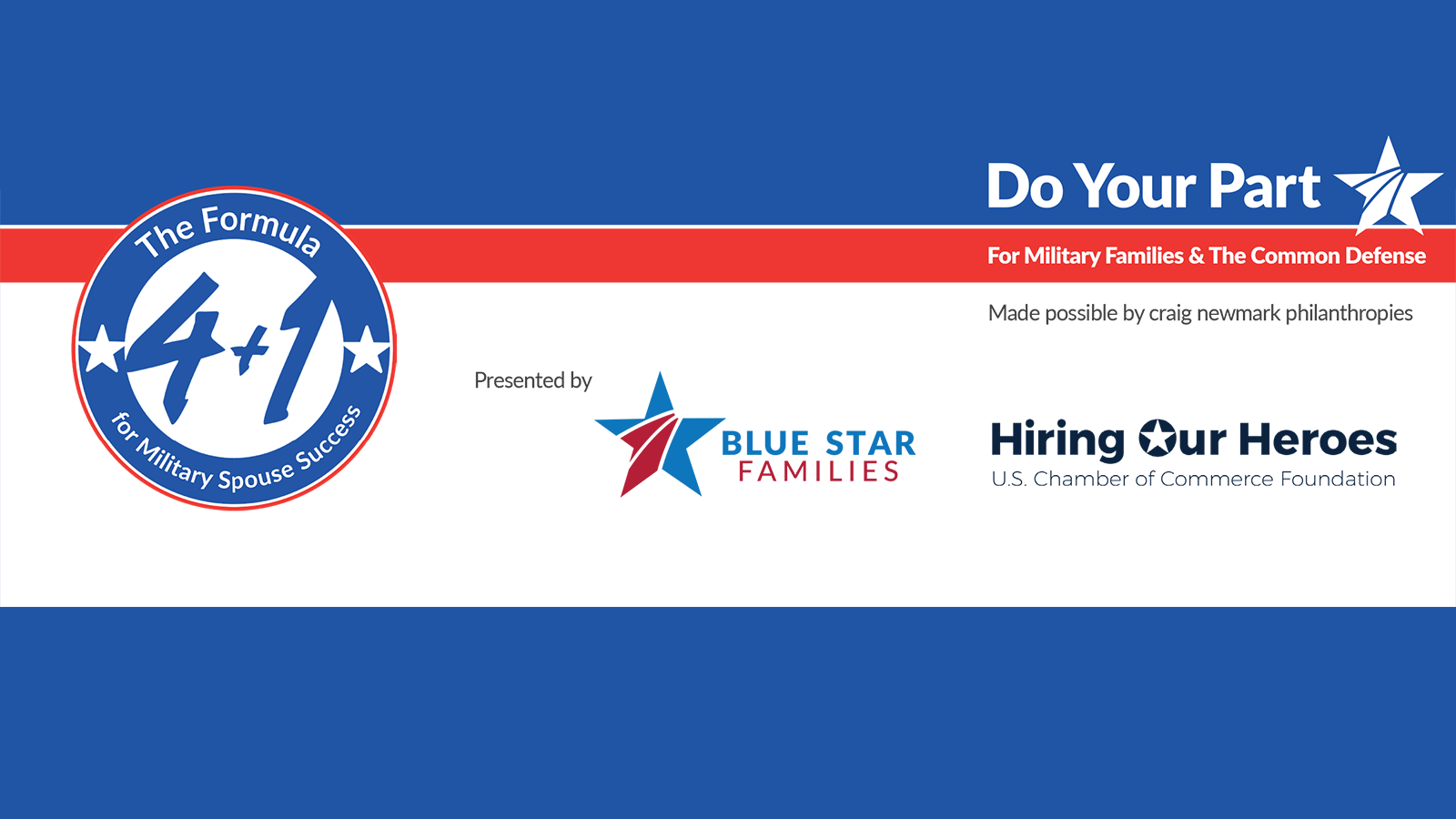
If you’ve ever looked at a job description and thought, “I can’t do that,” or “I’m not qualified for that,” you may struggle with imposter syndrome. It can be extremely difficult to cope with imposter syndrome while job searching. It can lead to feeling overwhelmed and anxious, making it hard to take action or stay motivated. While everyone has moments of self-doubt, those who struggle with imposter syndrome feel like it defines their worth or potential.
Read on to learn more about what imposter syndrome is, how it manifests in the job search, and how to overcome these feelings of inadequacy in your job search.
What is imposter syndrome?
Imposter syndrome is a psychological phenomenon where individuals doubt their accomplishments and feel like a fraud despite evidence that they are competent and successful. It is often experienced by high achievers who may feel like they don't deserve their success or that they don't measure up to their peers. It can cause feelings of fear, anxiety, inadequacy, and low self-esteem. 70 percent of successful people have reported imposter feelings at some point in their life, and this is especially prevalent in those looking for a new job.
What are the five types of imposter syndrome?
There are five main types of imposter syndrome, as characterized by Dr. Valerie Young, an internationally-recognized expert on impostor syndrome and co-founder of Impostor Syndrome Institute:
The Perfectionist
The Perfectionist always feels that they must always be perfect and never make a mistake. Perfectionists have a fear of failure or a fear of not being good enough. It can be expressed in the form of an inner dialogue or voice that keeps pushing them to be perfect in all aspects of their lives. This can lead to feelings of inadequacy, shame, and guilt. It can also lead to burnout and exhaustion. Perfectionists often set unrealistic standards for themselves, feel like a fraud, and have difficulty accepting compliments.
The Superperson
The Superperson individual feels inadequate despite having achieved success and feels that they must do it all and never ask for help. The Superperson feels like an imposter despite their accomplishments and believes that they are not as capable as others may perceive them to be. Individuals with this syndrome may feel undeserving of their accomplishments or believe that they are not capable of achieving any further success due to being an imposter. This can lead to low self-esteem and self-doubt and can affect how an individual performs in their work, studies, and any other aspect of life.
The Natural Genius
Similar to The Perfectionist, the Natural Genius might not just focus on getting a task perfect, but wants to know all the facts and information. Natural Geniuses get really frustrated with themselves when they don’t know everything, especially if the knowledge takes time to learn. They might start avoiding situations like meetings or managers until they feel they know it all.
The Soloist
The Soloist never wants to ask for help and always feels like they must do it alone and never rely on others for support, because they think asking for help means they are a fraud. Soloists might find it difficult to trust that others are as competent as they are or feel threatened if they share the win with others. If they do accept help or guidance, they question their own competence.
The Expert
The Expert imposter syndrome is characterized by people with a high level of expertise, knowledge, or skill feel as though they are frauds and do not truly deserve the title of “expert.” People affected by this syndrome tend to have an intense fear of being exposed or found out as an imposter, even though they have achieved a high level of success in their field. They may also experience feelings of inadequacy, low self-esteem, and a lack of confidence in their abilities. Symptoms of the Expert imposter syndrome can include anxiety, self-doubt, and difficulty taking credit for accomplishments.
How does imposter syndrome manifest in the job search?
.png) Imposter syndrome can often manifest during the job search in a variety of ways. Some common signs of imposter syndrome include feeling as though you aren't qualified enough to be considered for the job, feeling like you must continuously prove your worth, and having difficulty feeling confident in your skills and abilities. It can also lead to procrastination in submitting applications and a fear of attending interviews. However, it's important to remember that everyone experiences imposter syndrome in some capacity, and it doesn't mean that you're not capable of succeeding in the job search. It simply means that you need to be mindful of these feelings and take extra steps to ensure that you're putting your best foot forward.
Imposter syndrome can often manifest during the job search in a variety of ways. Some common signs of imposter syndrome include feeling as though you aren't qualified enough to be considered for the job, feeling like you must continuously prove your worth, and having difficulty feeling confident in your skills and abilities. It can also lead to procrastination in submitting applications and a fear of attending interviews. However, it's important to remember that everyone experiences imposter syndrome in some capacity, and it doesn't mean that you're not capable of succeeding in the job search. It simply means that you need to be mindful of these feelings and take extra steps to ensure that you're putting your best foot forward.
How can you overcome imposter syndrome in your job search?
If you’re on the hunt for a career change, but find yourself doubting your experience, abilities, or strengths, keep these tools in mind to help alleviate the effects of imposter syndrome in your job search.
“Qualify” yourself
Women only apply if they meet nearly 90% of the requirements of a role, whereas men tend to apply when they meet only 50-60% of the requirements, according to a Hewlett Packard internal report. This is a good case for the reality that it’s not always the “qualified” who get the job, but those who have the temerity to qualify themselves. Remember that you don’t need to check all the boxes for a job requirement, and companies realize that not everyone will be able to meet all the requirements. Don’t sell yourself short just because you feel that you don’t meet all the requirements.
Keep a “Wins” folder
If you’re feeling defeated and unqualified for many jobs, start cataloging your accomplishments in a “Wins” folder to organize and track your professional achievements. When you’re feeling unsure and incompetent, open the folder and scan the emails, screenshots, accolades, performance reviews, etc. that you’ve earned over the course of your professional career. This folder is especially helpful in crafting your resume.
Set and track achievable goals
Setting small, realistic goals allows you to identify tangible accomplishments and celebrate meeting them, increasing your self-esteem. This consistent reinforcement will help boost your self-confidence and keep you motivated during the job search, especially when feelings of doubt or low self-worth pop up. When job hunting, your small goals might look like updating your resume, applying to a few positions, or updating your job search spreadsheet. Check out Recruiter Amy West’s blog post on Amy’s Not-So-Secret Sauce for Job Hunting: 7 Steps to Help You in Your Job Search for more tips on how to job search like a pro.
Network with peers
For someone who struggles with imposter syndrome, attending a networking event can leave you spiraling in a comparison game with others in the job search. Remember, the goal of networking isn’t to measure yourself against others in your industry. It’s more so to give you perspective. Networking helps you gain a broader sense of the current job market and creates relationships with people in your field who understand your experience. Networking with peers can offer you the support, positive reinforcement, and validation that you need.
Job Seeker Resources from Orion Talent
Imposter syndrome can rob you of your confidence, make you doubt your unique skills and experiences, and cripple you from taking action in your job search and applying for a position that is the perfect fit for you. Instead of beating yourself up or getting lost in negative thoughts, take action to overcome imposter syndrome, however it is characterized for you.
Orion Talent can help make your job search productive and successful. Check out our job seeker resources on everything from resume writing, interview preparation, and more. If you’re transitioning military or a veteran seeking a career change, register to get your job search started with Orion Talent.
Archives
- February 2026
- January 2026
- December 2025
- November 2025
- October 2025
- September 2025
- August 2025
- July 2025
- June 2025
- May 2025
- April 2025
- March 2025
- February 2025
- October 2024
- May 2024
- March 2024
- February 2024
- January 2024
- December 2023
- November 2023
- October 2023
- September 2023
- August 2023
- July 2023
- June 2023
- May 2023
- April 2023
- March 2023
- February 2023
- January 2023
- December 2022
- November 2022
- October 2022
- September 2022
- August 2022
- July 2022
- June 2022
- May 2022
- April 2022
- March 2022
- February 2022
- January 2022
- December 2021
- November 2021
- October 2021
- September 2021
- August 2021
- July 2021
- June 2021
- May 2021
- April 2021
- March 2021
- February 2021
- January 2021
- December 2020
- November 2020
- October 2020
- September 2020
- August 2020
- July 2020
- June 2020
- May 2020
- April 2020
- March 2020
- February 2020
- January 2020
- December 2019
- November 2019
- October 2019
- September 2019
- August 2019
- July 2019
- June 2019
- May 2019
- April 2019
- March 2019
- February 2019
- January 2019
- December 2018
- November 2018
- October 2018
- September 2018
- August 2018
- July 2018
- June 2018
- May 2018
- April 2018
- March 2018
- February 2018
- January 2018
- December 2017
- November 2017
- October 2017
- September 2017
- August 2017
- July 2017
- June 2017
- May 2017
- March 2017
- February 2017
- January 2017
 RSS Feed
RSS Feed




















